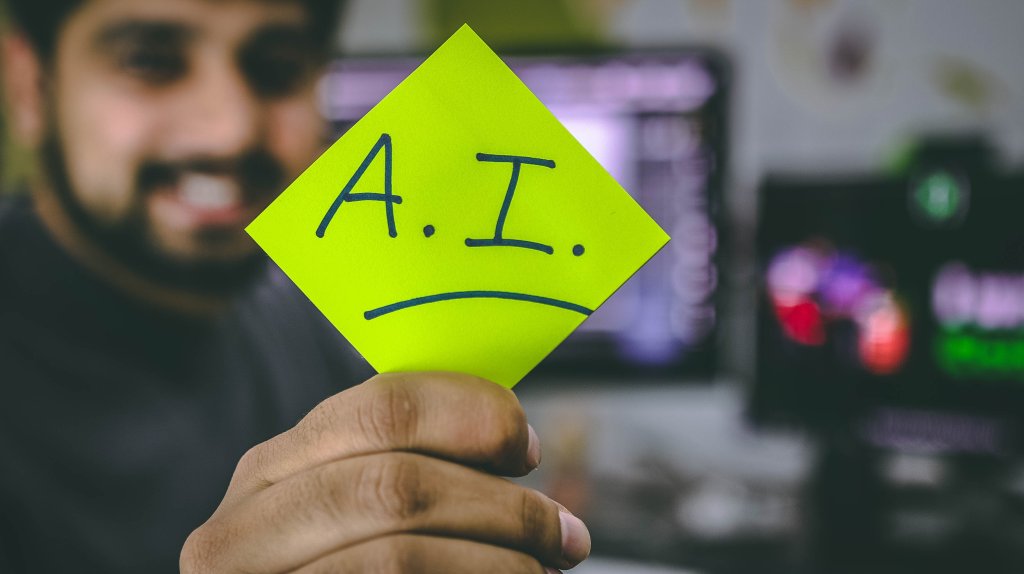Noah Weber
March 21,2023
Artificial intelligence (AI) has been a topic of discussion for several decades. However, in recent years, advancements in technology have led to significant developments in the field, leading to increased interest and investment in AI. Although some people are skeptical about AI, there are many ways in which AI can be beneficial for all of us.
One of the most significant benefits of AI is its potential to enhance efficiency and productivity. AI-powered machines and software can perform repetitive and mundane tasks that humans find boring or time-consuming, freeing up time for people to focus on more complex and creative work. For example, chatbots powered by AI can handle customer queries, allowing customer service representatives to work on more challenging issues. Similarly, AI algorithms can help automate data entry, analysis, and processing, making businesses more efficient and productive.
AI can also enhance decision-making capabilities. AI algorithms can analyze vast amounts of data and provide insights that humans may miss or take much longer to identify. This can help organizations make better-informed decisions, particularly in industries such as finance, healthcare, and logistics. For example, AI algorithms can help financial institutions detect fraudulent activities, while in healthcare, they can help doctors make more accurate diagnoses.
Furthermore, AI can be beneficial for society as a whole. For example, AI-powered robots can perform tasks that are dangerous for humans, such as cleaning up nuclear waste or exploring space. Similarly, AI algorithms can help predict natural disasters, allowing governments to take preventive measures to reduce the impact on citizens. AI can also be used to improve education by creating personalized learning experiences for students based on their individual needs and capabilities.
Another significant benefit of AI is its potential to improve healthcare. AI algorithms can help doctors make more accurate diagnoses by analyzing medical images and patient data. AI-powered robots can also perform surgeries with greater precision and accuracy, reducing the risk of human error. Additionally, AI can be used to develop new drugs and treatments for diseases by analyzing vast amounts of data and identifying patterns and correlations. Finally, AI can also lead to significant improvements in the environment. AI algorithms can help reduce energy consumption by optimizing energy usage and identifying areas where energy can be conserved. AI can also be used to monitor pollution levels, track wildlife populations, and identify areas where conservation efforts are needed.
Below are some advantages already in place
First, AI can help improve healthcare. With the use of AI, doctors and researchers can analyze large amounts of medical data and find patterns and insights that would be difficult or impossible to see with the human eye. This can lead to better diagnosis, treatment, and prevention of diseases. AI can also help with drug discovery and development by predicting the efficacy and side effects of new drugs.
Second, AI can help improve education. AI can personalize learning for each student by analyzing their strengths, weaknesses, and learning styles. This can lead to more effective and efficient learning and better academic performance. AI can also help teachers and administrators by automating administrative tasks, such as grading and scheduling, which can free up more time for teaching and student interaction.
Third, AI can help improve transportation. Self-driving cars, buses, and trucks can reduce accidents, congestion, and emissions, and increase efficiency and safety. AI can also help with logistics and supply chain management by optimizing routes, reducing delivery times, and minimizing costs.
Fourth, AI can help improve entertainment. AI can create personalized recommendations for movies, TV shows, music, and books based on a user's preferences and viewing history. AI can also create realistic and immersive virtual reality experiences, and enhance gaming by creating more intelligent and responsive opponents.
Fifth, AI can help improve the environment. AI can monitor and analyze environmental data, such as air and water quality, and predict natural disasters, such as hurricanes and earthquakes. This can help with disaster response and mitigation, and reduce the impact of climate change.
Sixth, AI can help improve business. AI can help with customer service by providing personalized recommendations and answering customer inquiries. AI can also help with fraud detection and prevention, and optimize pricing and inventory management.
Seventh, AI can help improve society. AI can help with public safety by predicting and preventing crime and enhancing emergency response. AI can also help with social welfare by identifying and addressing socioeconomic issues, such as poverty and unemployment.




